Elbert Hubbard was born on June 19, 1856 in Bloomington, Illinois and grew up in Hudson (Illinois). He founded Roycroft, an Arts and Crafts collaborative in East Aurora, New York in 1895. This endeavor grew from The Roycrofters, or the Roycroft Press, which was inspired by Morris’s Kelmscott Press. Hubbard published two magazines in East Aurora and oversaw the production of books, bindings, furniture, and leather and copper goods.
Elbert Hubbard developed a very personal ideology and endorsed everything from a Morris-esque socialist platform to a defense of free-market capitalism.
His printing aesthetic is different from Morris’s but it is clear that he shared his sensibilities about work, stating: “The menial is a man who is disloyal to his work. All useful service is raised to the plane of art – When love for the task – Loyalty – is fused with the effort.” Hubbard clearly had a great deal of respect for Morris, and he makes reference to his wares as he sets the first scene of the play Justinian and Theodora in the grand court room of the emperor Justin: “The apartment seemingly designed and fitted out by William Morris and Alma-Tameda.”
Hubbard, known as “Fra Elbertus” by his fellow Roycrofters, died in the sinking of the Lusitania by a German submarine in 1915.
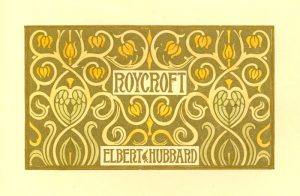
Hubbard’s printers mark 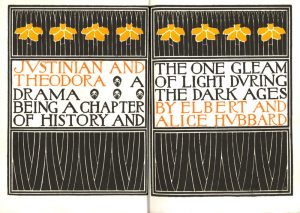
The title spread from one of Hubbard’s most well-designed books-‘Justinian and Theodora’ 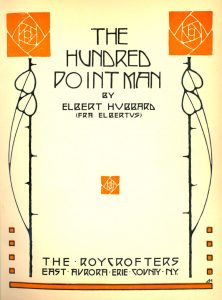
A title page which shows a movement by Hubbard to a more art deco style 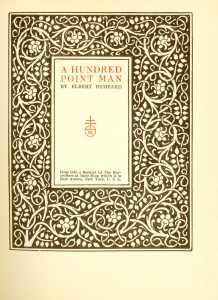
One of Hubbard’s title pages which best shows Morris’s influence 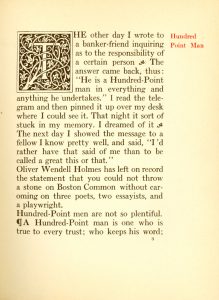
A page from ‘Hundred Point Man’ which shows continued influence by Morris 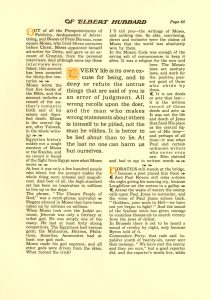
A page from ‘The Note Books of Elbert Hubbard’ 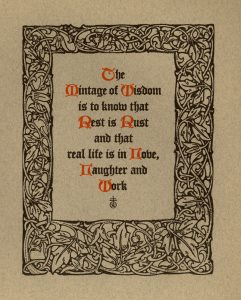
One of a number of gray, full-page printed sayings interspersed in the text of ‘The Notebook of Elbert Hubbard.’ 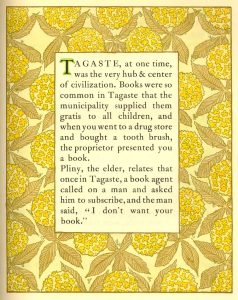
The first page from ‘The City of Tagaste’, one of Hubbard’s very colorful designs
